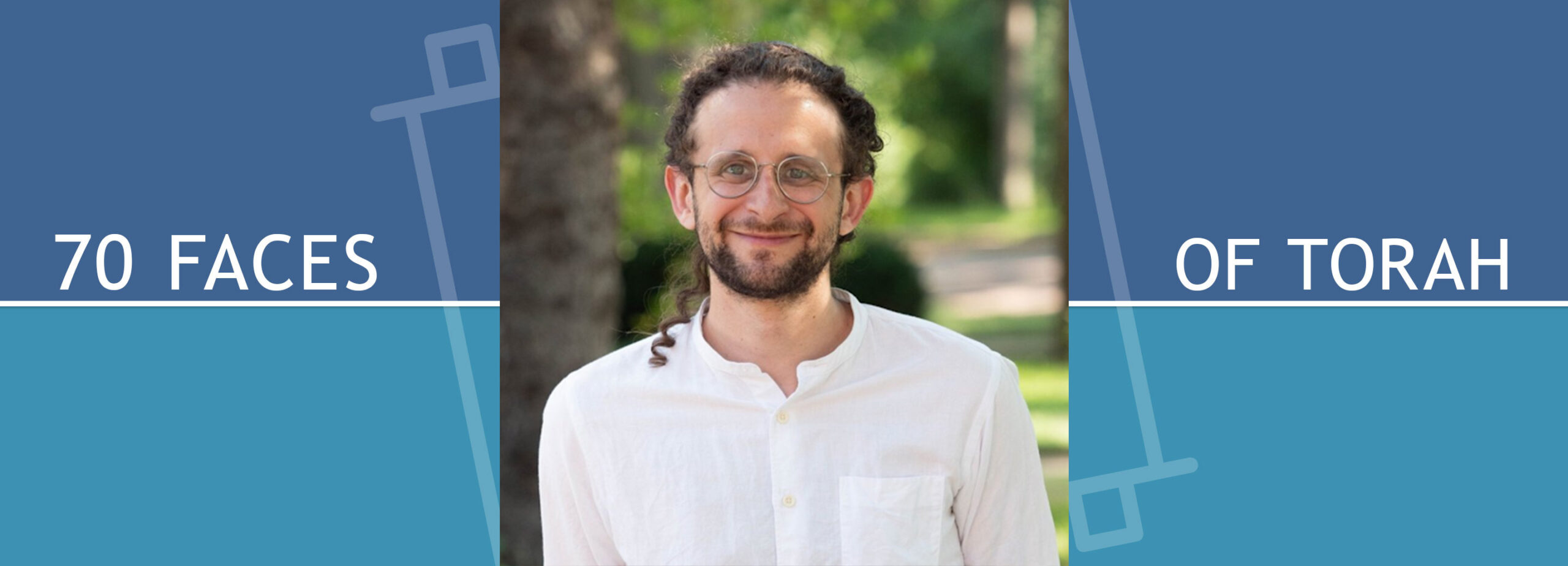Deuteronomy The Prophecy of Writer’s Block

Parashat Nitzavim-Vayelech Deuteronomy 29:9-31:30
It is the season of rabbinic writer’s block. Each year, those of us who give sermons for the High Holidays jump on to WhatsApp groups and listservs, commiserating about the pressure and challenge of speaking our truth during Rosh Hashanah and Yom Kippur services. This year, the task feels harder than ever. As we speak to a community rocked by the events of October 7th, the ongoing devastation in Gaza, rapidly spreading violence throughout the Levant, and the upcoming U.S. election, many of us are struggling to know how best to use our voices. While we rabbis have a particular challenge, we are not alone. It seems like everyone in my life is struggling to answer the questions and pains of friends, students, and children. What words could possibly bring us towards consolation, justice, and power in this painful season?
In our Torah this week, Moshe struggles with his own writing assignment. In Deuteronomy 31:19, God commands Moshe:
Now, write this song /
and teach it to Israel.
At first glance, Moshe seems to rise to the occasion. A few verses later, we hear:
Moses wrote down this song, on that day.
and taught it to the Israelites.
Strangely, neither of these verses, nor anything in the surrounding context, gives a clear picture of the song, lyrics or melody that Moshe composed that day. Traditional commentators have puzzled over the nature of Moshe’s song. Their exploration of this musical mystery gives a glimpse into what it means to create in the midst of profound suffering.
Before chewing on this big question, we’ll need to zoom in on the context of God’s request for song and Moses’ songwriting. This command and action sit in the fifth and sixth aliyah of our parashah. It’s an eventful passage. God reminds Moses of his imminent death and tells the prophet that the people will go astray after he dies. In the wake of the devastating reminder, we arrive back at our writing assignment; God commands Moshe to write and teach a song that God can use to reprimand the wayward future generations. Oy! Our Torah finds Moshe in a remarkably painful moment, reminded of his own mortality and his people’s ongoing shortcomings.
Faced with these challenges to his legacy and his people’s future, we return to the question: what song did Moses compose? Perhaps it’s not surprising that our traditional commentators have faith in Moses to respond to the situation with grace. Faced with the mystery of the words “this song,” Rashi suggests that the song that Moses composed and taught forms the next parashah, Ha’azinu. Rashi’s grandson, the Rashbam, makes a more expansive argument, suggesting that “this song” refers to all of the book of Deuteronomy. One line of reasoning in the Talmud, in Nedarim, makes an even more audacious claim, arguing that in our one little verse, Moses writes and teaches the whole Torah.
I would like to pause and imagine this most expansive reading. According to Nedarim 38a, the entirety of our Torah was written down in this moment by an old, tired man, fearing for his imminent death and for the wellbeing of his community. He wrote down everything that he could remember, the stories of his ancestors, his life, his people’s unfolding relationship with God. He wrote all of this hoping that something in this song would keep his community together and in relationship with his beloved God. And yet he knew what God had told him, that he would soon die and that his people would go astray.
The traditional commentators that we’ve seen take the unexplained mystery of the phrase “this song” and fill it up with a heroic Moses, composing a parashah or a book or an entire textual tradition at one of the lowest moments of his life. I want to suggest an alternative path. Perhaps the vagueness of the phrase “this song” is not representative of an expansive corpus of prose and poetry, indeed perhaps it’s not representative of anything. Perhaps Moses faced the enormity and impossibility of his task and succumbed to writer’s block. The only words he was capable of writing down were the two words of God’s most recent commandment השירה הזאת, this song. And then, he said these words, “this song,” to his people, not as prophecy, but as a call for help.
In his comment on these verses, Ibn Ezra notes that God’s initial command to Moses, to write a song, is written in the plural as in “you all must write a song.” Ibn Ezra deduces from this plural that the task is not given to Moses alone but rather, in the word of the commentator, to anyone—מבין לכתוב—who understands how to write. As Moses penned and then sang out the empty words “this song,” he might have been calling out to all the writers of his community, all the artists, feelers and lovers of the Jewish people. He might have been calling out not only to the Israelites in the desert with him, but up through the generations to us today. He might have been inviting all of us to write a song, for Moshe, for God, and for our own hearts, that could provide love and strength to all the suffering we have and will face.
I feel the friction of this approach to our parashah chafing against the question that started this essay: what words might match the challenges of this moment? The image of Moshe asking his community for help suggests that there is not one perfect formula or magic phrase that will solve the pains of this world. Rather, our redemption comes in the dissonance and harmonies of leaders and communities struggling to find our voices together.
Since 2022, R’ Joey has served as the assistant rabbi at Congregation Shir Tikvah in Minneapolis. A proud native of Pittsburgh, PA, R’ Joey is an alum of Colorado College, the Graduate Theological Union, the Wexner Graduate Fellowship, and Hebrew College. Before being ordained as a rabbi, R’ Joey worked with small Jewish communities in beautiful places, including the Hudson Valley, the Adirondacks, the Green Mountains, and the Maine coast. R’ Joey is passionate about inter-religious dialogue, old-time fiddle music, and his hometown Pittsburgh Pirates.
Meet students and faculty at one of our fall open houses, Ta Sh’ma (Come & Hear) November 18 (in-person) or online (Dec. 8). Learn more and register.


